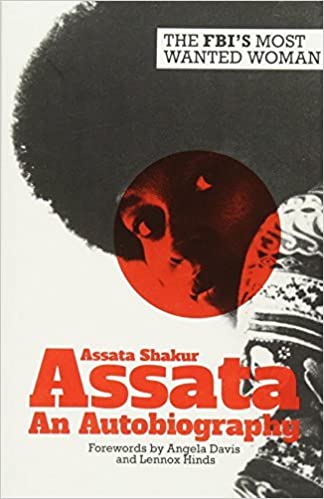Lessons From Assata: What is Still True Today
Assata: An Autobiography
By Assata Shakur
Assata Olugbala Shakur was a member of the Black Liberation Army (BLA) during the 1970s. In 1977 she was convicted on one charge of murder and six charges of assault, then sentenced to life in prison. Members of the BLA helped her to escape from federal prison in 1979. A few years after her escape, she settled in Cuba where she was granted political asylum. There she wrote her autobiography. She still lives in Cuba today, despite many attempts of the U.S government to have her extradited.
2020 has been a year of social and political upheaval: from the onset of the coronavirus pandemic in mid-March to the protests over police brutality during the summer to a contested presidential election, Americans have faced issue upon issue.
In the light of many conversations around policing, incarceration, and racial inequality, Shakur’s book holds just as much relevance today, in 2020 as it did when it was first published, in 1987. Popular magazines’ anti-racist reading lists include it. People from activists to authors to academics reference her. Politically active youth discuss her on social media platforms, such as TikTok and Instagram.
Although her experiences and the world she portrays, in many ways, describes a time long passed, her social, political, and economic critiques still resonant with the reality of today.
During one chapter she relays a conversation between her and a prison guard regarding their request for her to do labor. In October 2016, shortly before the 2016 presidential election, filmmaker Ava DuVernay released her documentary 13th, it’s namesake for the 13th amendment to the United States Constitution ratified in 1865. Shocking many Americans with the commentary that slavery never truly ended.
“Don’t you know that slavery was outlawed?”
“No,” the guard said, “you’re wrong. Slavery was outlawed with the exception of prisons. Slavery is legal in prisons.”
I looked it up and sure enough, she was right.
Assata: An Autobiography
Over the summer of 2020, America saw mass protests nationwide in relation to the Black Lives Matter Movement and the fight for racial justice. Although a number of news outlets reported the financial cost, role of insurers, and long-term impact. The data clearly shows that the overwhelming majority, about 95% of all protests, were peaceful. Despite that, the uprisings received significant criticism. While others came to the defense of those damaging property, following a similar line of thinking as Shakur.
“The rulers of this country have always considered their property more important than our lives.”
Assata: An Autobiography
Shakur also addressed the intersection of capitalism and racism, articulating the prison-industry complex (PIC) in accessible terms. Today people from all backgrounds discuss the impact of the PIC in schools and low-income communities of color.
“Prisons are a profitable business. They are a way of legally perpetuating slavery. In every state more and more prisons are being built and even more are on the drawing board.”
Assata: An Autobiography
Despite her experiences of hardship, discrimination, surveillance, mistreatment, and imprisonment, Shakur remained hopeful.
“The world, in spite of oppression, is a beautiful place.”
Assata: An Autobiography
Her writing provides inspiration for people after her who want to engage in the fight for justice.
“Revolution is about change, and the first place the change begins is in yourself.”
Assata: An Autobiography



